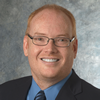"Soft condensed matter” is used to describe a rich variety of classical many-body fluid and material systems that can be used to explore universal concepts in condensed matter. There are many properties that make soft matter an exciting frontier: it is dissipative, disordered, far-from-equilibrium, non-linear, thermal and entropic, slow, observable, often gravity-affected, patterned, non-local, interfacially-elastic, memory-forming and active. Issues inherent in soft matter raise problems that are broadly important in diverse areas of science and require multiple modes of attack: e.g., far-from-equilibrium behavior is confronted in biology, chemistry, geophysics, astrophysics and nuclear physics. Similarly, issues dealing with disorder appear broadly throughout many branches of inquiry wherever rugged energy landscapes are invoked.
As shown in the list below, the vibrant soft-matter community at the University of Chicago stretches over Department and Institute boundaries. We have members from the Chemistry, Computer Science, and Physics Departments and from the Institute for Molecular Engineering and the James Franck Institute. Most of the research is located in the two building adjoining the Kersten Physics Teaching Center: the East Wing of the Gordon Center for Integrative Science and the Eckhardt Research Center. The Computer Science Department is located on the main Quadrangle of the University in Ryerson Laboratory.
